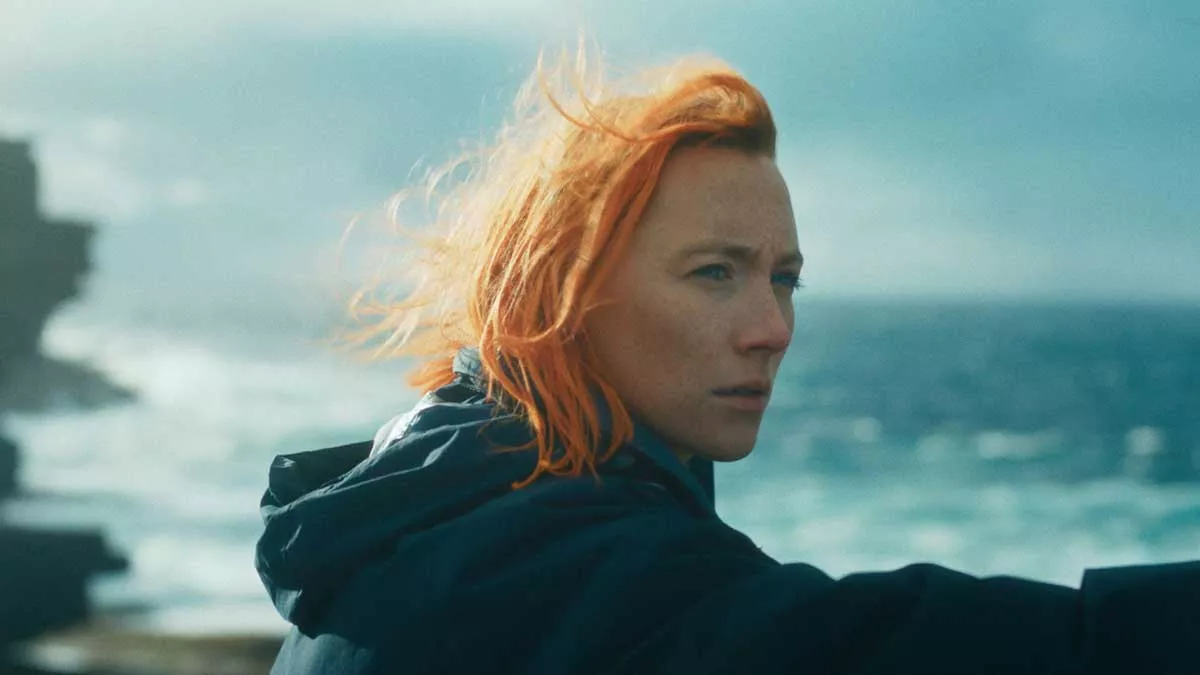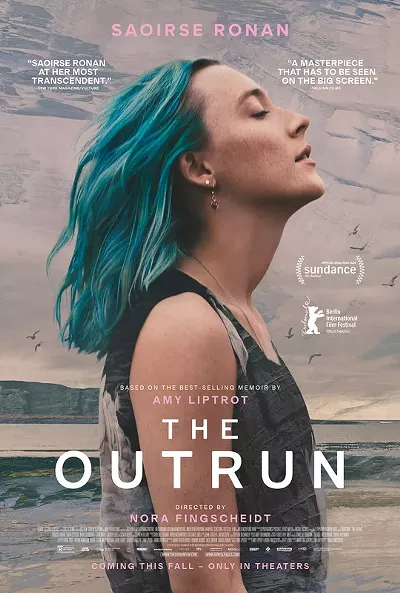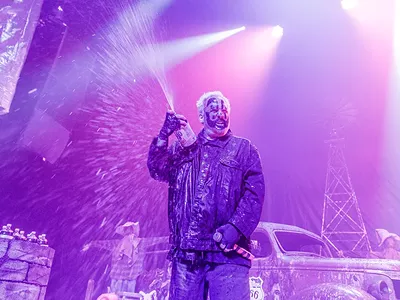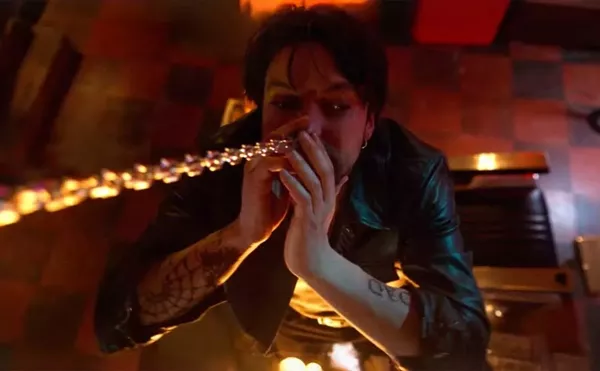‘The Outrun’ is an empathetic portrait of a woman struggling with addiction
This film understands that our demons don’t define us wholly


Audio By Carbonatix
[
{
"name": "GPT - Leaderboard - Inline - Content",
"component": "35519556",
"insertPoint": "5th",
"startingPoint": "3",
"requiredCountToDisplay": "3",
"maxInsertions": 100,
"adList": [
{
"adPreset": "LeaderboardInline"
}
]
}
]
I think most of us know the feeling of either loving an alcoholic or being one. I’ve been in a relationship with someone struggling with alcoholism and will never forget the gut-churning fear of watching the person that put fire to my blood subtly shift into an unrecognizable other that made being in public a nerve-wracking experience.
Most films that focus on alcoholism take such a po-faced, maudlin, and stereotypical approach to the pain that they usually end up feeling patronizing, sermonizing, and desperate to shove a message down the viewers’ throats. Name the last great movie about alcoholism… was it Leaving Las Vegas? That movie came out almost 30 years ago. Wild? Good, but totally a message movie.
The Outrun works because it’s not just a movie about alcoholism. Yes, that’s the center of the film, but it’s also a memoir, a travelog of the Orkney Islands in Scotland, an unflinching look at inherited family trauma, and a realistic depiction of what it looks like to live with anxiety.
Rona (played by the always-lawless Saoirse Ronan) isn’t just an alcoholic. She’s a tirelessly educated biologist, a deeply loving daughter, and a flawed and empathetic woman who struggles with addiction. The Outrun understands that our demons don’t define us wholly.
Raised by a deeply religious mother and a schizophrenic and bipolar father, Rona’s alcoholism isn’t necessarily blamed on her upbringing. Nor is it blamed on growing up on the remote Orkney Islands and then moving to bustling and overwhelming London. It’s not blamed on her anxiety or her stress. She’s not treated like a victim or a villain. Rona is just a human being and with Ronan instilling her with such ineffable life, she feels like our sister, our daughter, our friend.
Where The Outrun really shines (aside from the truly astonishing Ronan) is in the choice to tell the story non-chronologically. By jumping around through her life, from the depths of her alcoholism in London clubs to her sober, secluded days at the edge of the North Sea searching for a rare corncrake for the Royal Society for the Protection of Birds, we see the stages of her days as little stutter steps to recovery. Without feeling episodic, the film shares Rona with us in glimpses that feel like honest and gorgeously observed moments that make up a complicated and three-dimensional human being. It’s the Eras Tour of a regular person.
There’s the cliche “no matter where you go, there you are,” meaning that no matter how far away you go from home, you can never outrun your demons or whatever haunts you. Yet, watching Rona go from the thrumming sea of humanity that is London to the pastoral Orkney to the profoundly remote and inhospitable Papa Westray Island, we believe it’s possible to truly remake yourself the further you get away from your trauma, adding new colors to your spirit in the same way that Rona does to her ever shifting hair. This movie could have played so corny, but instead it feels like earned optimism and lessons taught from a hard-lived life.
It’s impossible to overstate the gorgeous balance struck between Ronan’s performance, Nora Fingscheidt’s assured, innovative direction, Yunus Roy Imer’s textured and muscular cinematography, and Stephan Bechinger’s expertly calibrated editing. The combination of their work alongside overwhelmingly gorgeous music by John Gürtle and Jan Miserre means we feel present with Rona for the entire film, experiencing her recovery and alcoholism in real time along with the filmmakers and Ronan’s endlessly expressive face.
Rona spends large pieces of the movie walking along the coast, mesmerized by the ocean and listening to droning electronic music that feels like her last tangible thread back to the party girl she left behind in London. We sit and watch her watch the ocean, hoping that if she takes the headphones off and just listens to waves break against the cold wet rocks and the deep bass growl of the sea that she’ll start to heal and that, maybe, that can give us permission to do the same.
It’s such a simple way of generating empathy, but I found myself moved without even realizing it as I thought about the beautiful dance between all of our individual lives and losses and triumphs balanced with the universal pains, traumas, and heartaches that we carry between us like an intangible spiderweb binding us together. Even through our differences, we’re all rolling the boulder, climbing the hill, watching the ocean. No matter where you go.
Grade: A






